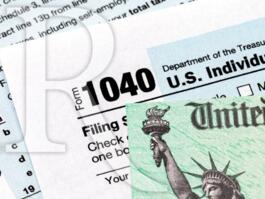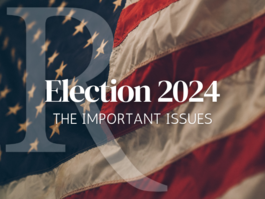55% Say Decreased Government Spending Good for the Economy
President Obama and Congress are currently debating how deep to cut government spending and whether to include some tax increases as part of a budget deal. But voters feel more strongly than ever that decreasing government spending is good for the economy and think tax increases of any kind are bad economic medicine.
A new Rasmussen Reports national telephone survey finds that 55% of Likely U.S. Voters now think decreases in government spending help the economy. Twenty-four percent (24%) believe decreased spending hurts the economy, while 11% say it has no impact. (To see survey question wording, click here.)
Prior to these findings, belief that decreased government spending is economically beneficial has ranged from 44% to 53% in surveys since June 2009.
Just 24% of Likely U.S. Voters think tax increases help the economy. Fifty-four percent (54%) disagree and believe tax hikes hurt the economy. Eleven percent (11%) feel they have no economic impact, while another 11% are not sure. Most voters have said tax increases hurt the economy in every survey but one since July 2008.
But only 41% of voters now would choose a candidate who promises to oppose all tax increases versus one who promises to raise taxes only on the rich. A plurality (49%) would opt instead for the candidate who promises to raise taxes only on the rich. In February, for the first time in over two years, voters began showing more support for a candidate who promises to only raise taxes on the wealthy.
Partisan differences tell the tale. Seventy percent (70%) of Republicans favor a candidate who opposes all tax increases, while 81% of Democrats prefer a candidate who promises to raise taxes only on the rich. Voters not affiliated with either major political party are evenly divided.
(Want a free daily e-mail update? If it's in the news, it's in our polls). Rasmussen Reports updates are also available on Twitter or Facebook.
The survey of 1,000 Likely Voters was conducted on July 6-7, 2011 by Rasmussen Reports. The margin of sampling error is +/- 3 percentage points with a 95% level of confidence. Field work for all Rasmussen Reports surveys is conducted by Pulse Opinion Research, LLC. See methodology.
Rasmussen Reports is a media company specializing in the collection, publication and distribution of public opinion information.
We conduct public opinion polls on a variety of topics to inform our audience on events in the news and other topics of interest. To ensure editorial control and independence, we pay for the polls ourselves and generate revenue through the sale of subscriptions, sponsorships, and advertising. Nightly polling on politics, business and lifestyle topics provides the content to update the Rasmussen Reports web site many times each day. If it's in the news, it's in our polls. Additionally, the data drives a daily update newsletter and various media outlets across the country.
Some information, including the Rasmussen Reports daily Presidential Tracking Poll and commentaries are available for free to the general public. Subscriptions are available for $4.95 a month or 34.95 a year that provide subscribers with exclusive access to more than 20 stories per week on upcoming elections, consumer confidence, and issues that affect us all. For those who are really into the numbers, Platinum Members can review demographic crosstabs and a full history of our data.
To learn more about our methodology, click here.



